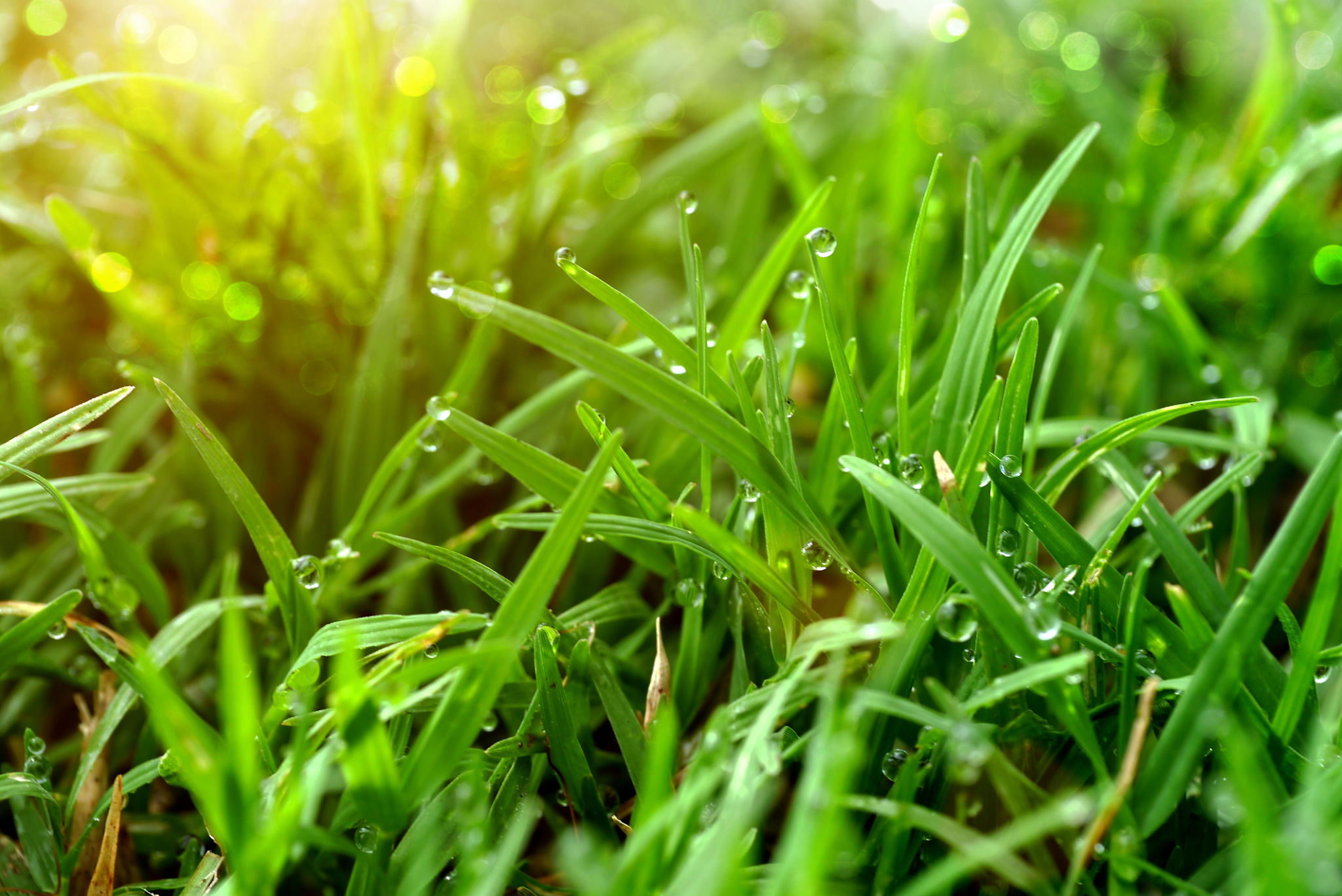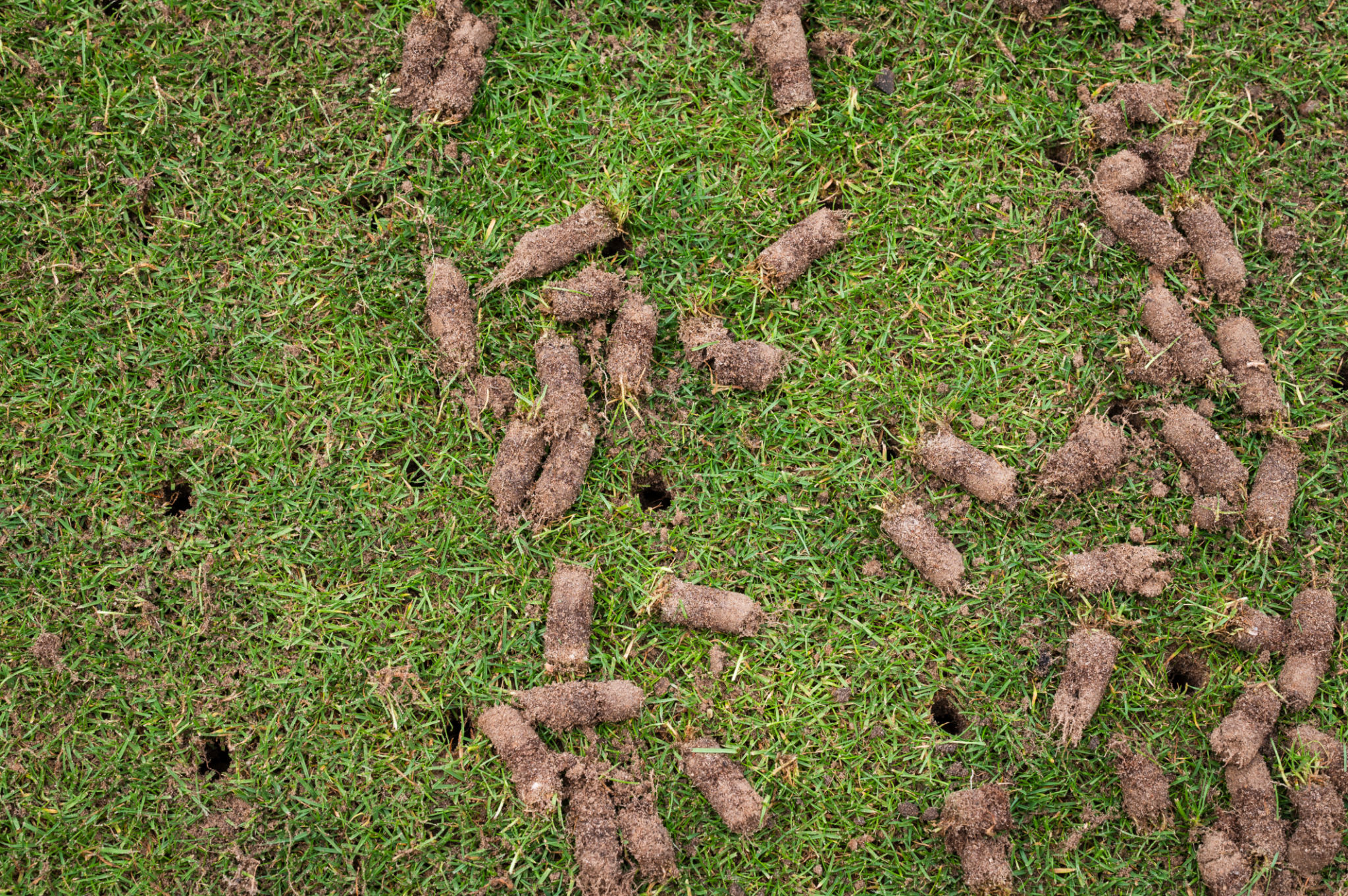Why Aeration is Essential for Healthy Bermuda Grass: A Local Perspective
Understanding Aeration
Bermuda grass is a popular choice for lawns due to its lush, green appearance and durability. However, maintaining its health requires more than just regular watering and mowing. One crucial but often overlooked practice is aeration. Aeration involves perforating the soil with small holes to allow air, water, and nutrients to penetrate the grass roots. This process helps the roots grow deeply and produce a stronger, more vigorous lawn.
Aeration is especially important for Bermuda grass because it tends to grow densely, which can lead to soil compaction over time. When the soil is compacted, there's little room for the roots to expand, and essential elements like water and oxygen struggle to reach them. This is where aeration comes into play, providing the necessary space for grassroots to thrive.

The Benefits of Aerating Your Bermuda Grass
Regular aeration offers numerous benefits that contribute to the overall health of your Bermuda grass lawn:
- Improved Soil Structure: Aeration reduces soil compaction, allowing for better water absorption and nutrient uptake.
- Enhanced Root Development: By improving access to air and nutrients, aeration encourages deeper root growth, which can increase drought resistance.
- Reduced Water Runoff: Aerated lawns absorb water more efficiently, reducing runoff and ensuring that your grass receives the moisture it needs.
Incorporating aeration into your lawn care routine can lead to a healthier, more resilient Bermuda grass lawn capable of withstanding various environmental stresses.
When to Aerate Your Bermuda Grass
The timing of aeration is crucial for maximizing its benefits. For Bermuda grass, the best time to aerate is during its peak growing season, which typically falls in late spring or early summer. During this period, the grass can recover quickly from the aeration process and take full advantage of the improved soil conditions.

Avoid aerating during dormant periods, as this can stress the grass and lead to potential damage. Observing your lawn's growth patterns will help you determine the optimal time for aeration.
The Aeration Process
Aeration can be performed using manual or mechanical tools. Manual tools, like a hand aerator or a garden fork, are suitable for small lawns but can be labor-intensive. For larger lawns, a mechanical core aerator is more efficient. This machine removes small plugs of soil from the lawn, allowing for better air circulation and nutrient absorption.
After aerating, it's beneficial to leave the soil plugs on the lawn as they break down naturally and contribute organic matter back into the soil. Following up with watering and fertilization will further enhance your lawn's recovery and growth.

Local Considerations for Bermuda Grass Care
Understanding your local climate and soil conditions is essential when planning aeration for your Bermuda grass. In regions with heavy clay soils, more frequent aeration may be necessary due to higher compaction levels. Additionally, varying weather patterns can influence the best timing for aeration.
Consulting with local gardening experts or extension services can provide valuable insights tailored to your area's specific needs. They can offer guidance on adjusting your lawn care practices to suit local conditions, ensuring that your Bermuda grass remains healthy and vibrant year-round.
Conclusion: A Healthier Lawn Through Aeration
In summary, aeration is a vital practice for maintaining healthy Bermuda grass. By improving soil structure and promoting deeper root growth, aeration helps create a resilient lawn capable of withstanding environmental challenges. Regular aeration, combined with appropriate watering and fertilization, will keep your Bermuda grass looking lush and thriving.
Whether you're a seasoned gardener or new to lawn care, incorporating aeration into your routine can make a significant difference in the appearance and health of your lawn. Embrace this essential practice and enjoy a beautiful Bermuda grass lawn that enhances your property's curb appeal.